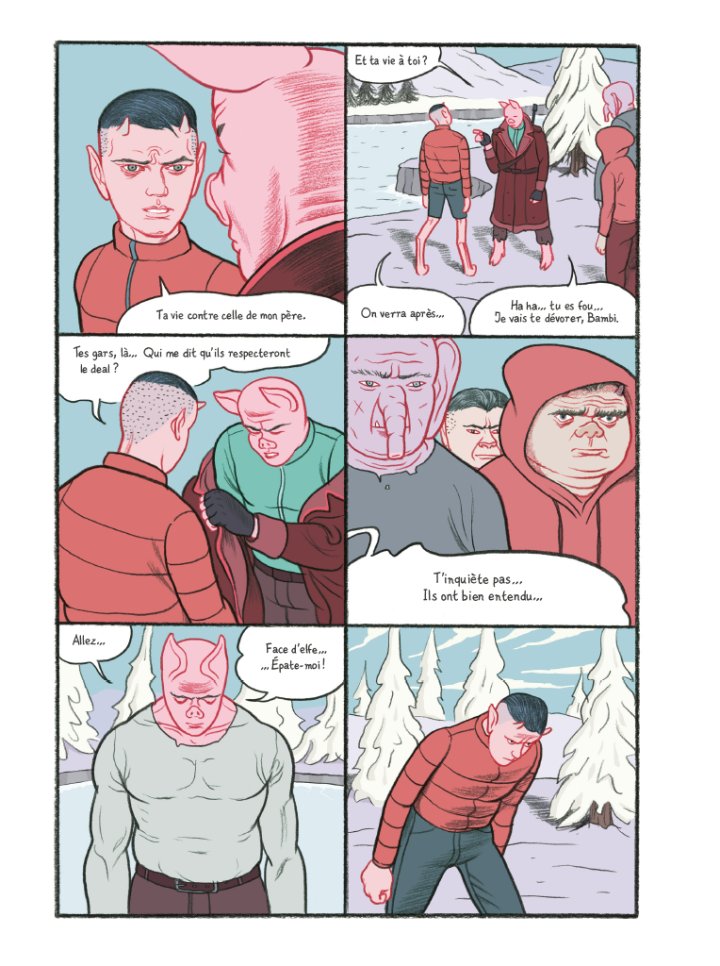Science fiction is a techno-scientific literary genre. It deals with the future from the point of view of scientific plausibility: even when scifi deals with time travel and interstellar travel, it is supposed to be at least slightly plausible. Fantasy, its close cousin, on the opposite assumes the scientific insufficiency of many events, ranging from an army of gods or trolls to living trees or talking stones. From this point of view, these two genres are irremediably separated.
Ursula Le Guin and Donnay Haraway are two eminent personalities in literature and scientific studies who tell another story. Both are “writer of the night“, to quote Le Guen and are telling us more about our fears and passion than about the future world. They have made assumptions about what’s relevant and what’s not, what needs to be stable over time, and what’s supposed to be changed, says Donnay Haraway.
From this point of view, science fiction, fantasy, but also ordinary science, must be able to support and disseminate tacit visions concerning the future and the capacity of humanity to transform it. Recent debates about the so-called age of the Anthropocene perfectly illustrates it. This now popular concept expresses fears about the impact of human kind on the Earth, but also sees the world and new solutions, through the prism of human domination, leaving no room for another interspecific dialogue. Here again, the way you build the world, the way you define the future, even in a dystopian way, define your ability to act.
We hypothesize that dystopia favors reflection on the limitation of our current activities, but at the same time does not really speculate based on solutions that would be impossible or illogical. Left-wing writers and critical analysts often use this argument to deconstruct green washing by explaining that “it’s easier to imagine the zombie Apocalypse than to imagine the end of capitalism” (Zara Zimbardo). As the French specialist Yannick Rumpala recently demonstrated in his book “Hors des décombres du monde“, science-fiction dystopia on ecological mistakes is structured along a few narratives only. Put it differently, it seems that dystopia is as conservative as utopia is.
On the other hand, some authors manage to propose interesting alternatives. Ludovic Debeurme is a French comic book creator who offers an interesting combination of fiction and fantasy that could shake the conformism of dystopia to encourage us to think more deeply. In his series on progress called Epiphania, he assumes that some meteors hit the Earth and that event has literally sown babies in the soil. These babies are mixed living things : half human, half animal, with a development that is much faster than the “real” man.

New epiphanian inborn
Debeurme then tries to imagine how these two species could coexist in our current society. While some issues are quite common – such as racial discrimination of epiphanes by other human beings, their solidarity or the difficult relationship between an adopted child and his father – others are highlighted in interesting ways. As an example, how can we speculate about the possibility of improving the human / animal body not by techno-simulation, but on the basis of its own diversity (made of violence, sensory abilities, etc.)?
In fact, the book assumes that technology inhibits the body’s development of epiphanes, which is only possible if we assume the fantastic side of the story. The relationships between man and epiphanes are sometimes complex (for example concerning the question of adolescence, the body change, the role and the power of the “physical anomaly” etc.), in order to underline all the challenges of building a new relationship between the human beings and “mother earth” (quite literally Mother Earth, since in fact epiphanes are born from the soil).

Physical violence at the heart of social relations
All this just to hypothesize that, in order to create a world that goes beyond our own tendencies to see dystopia only in a limited techno-scientific way, we might have to accept a truly fantastic hypothesis.

